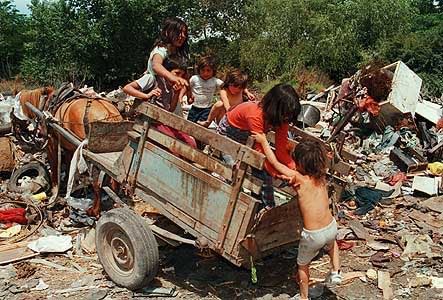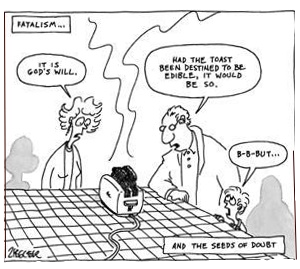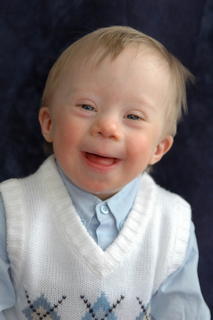| By: Paul S. Cilwa | Page Views: 3123 | ||
| Living with a belief in the mechanisms of reincarnation and karma requires a re-evaluation of pretty much every opinion and attitude we possess. | |||
Does a belief in reincarnation produce happier, healthier, people? Is there an advantage to accepting this belief?
Most people on earth believe in reincarnation, though only
a minority of Americans do. The majority of believers live in India, China, and
Tibet. Westerners have looked at the poverty, disease, and overpopulation of
these countries, and put blame for these conditions on the local
belief in
reincarnation.
Of course, Tibet isn't particularly overpopulated; nor is it a hell-hole of poverty and disease. Its worst fate in recent times has been its takeover by China, which in turn has become far more dangerous to the world and restrictive of Human rights since its Communist revolution, which outlawed all religious beliefs, including that of reincarnation.

In fact, among modern countries suffering from poverty, overpopulation and disease, one must consider South America, in which most residents are Catholic and do not believe in reincarnation. So, perhaps, belief in reincarnation neither causes nor prevents dysfunctional cultures.
The reason that reincarnation ever received blame for poverty and disease was the fact that some believers in reincarnation also believe that punishment from past misdeeds is the reason for all misfortune in this life. Rather than become caught in a pattern of cause-and-effect (called karma in Sanskrit), these believers refuse to become involved in any other person's problems. The traditional belief also sees people as victims, though of their own karma. The karma is in the past; the punishment is in the present and can't be avoided. That implies a certain degree of fatalism, and still doesn't leave much room for upliftment in this lifetime.

But, just as there are many ways in which Christianity has found expression, believers in reincarnation come in many flavors. Perhaps more typical is the Tibetan Buddhist, who maintains a constant awareness of the sacredness of all life, and thus avoids killing even insects.
There are newer attitudes arising, however. The American spin on the belief may be giving it its most sophisticated slant. This new approach suggests that, by maintaining a heightened awareness of one's own karmic debts, one can avoid the ill effects of karma and become a happy, self-determining, being. Furthermore, the new approach sees karma, not as punishment, but as balance and an opportunity for the soul's learning and experience.

How to gain this heightened awareness? The first step is to imagine oneself as one's being: the spiritual being, or soul, from which your conscious self arises.
This being understands, as we understand the weather, the flow of universal energies throughout space and time. This being knows the lessons that must be learned, and the circumstances under which they can be learned most effectively. Together with all other beings, it works to choose just the right circumstances for birth and the early years, so that the resulting personality will naturally slide into the circumstances it needs. Happiness is not a goal, here; neither is wealth, health or any other particular state, except in how that state will encourage the experiences the Innermost Self understands are needed.

And in other cases, the baby may not have any karma to deal with at all; he or she may be an enlightened being come to provide loving lesson opportunities for its parents.
Thus, when a baby is born, it has just the genes needed to produce the ideal body for the lifetime ahead. This may not be a healthy body, but it will be a body in which the proper lessons can be learned. Its parents are the perfect parents for what it must learn, for the person it must become. If the parents are fighting and break up shortly, that was foreseen. If a new father or mother comes along, that was foreseen. It isn't an unchanging fate that forces these situations; it is energy flows and probabilities, clearly visible to the Innermost Self and the higher selves of all those involved.
It's been said that crib death is often the result of a baby's family circumstances unexpectedly changing after birth, so that the future experiences will no longer produce the needed result. The baby leaves that life early, so that a more appropriate situation can be found.
The Consequences of Assistance
Now, I've just turned much of what most Americans believe upside down. Our economic structure is based on the theory of victimhood. That lawyers profit from it is obvious; but so do insurance companies, home and business security firms, the health care industry, and even the non-profit rescue industry.
Consider what happens when you do send just 49 cents a day!
to feed the starving
children
in some village a celebrity has-been has cried over: The parents in this
village, unwilling to practice either birth control or restraint, have
overpopulated their areas until the land can no longer feed them; that's
why they are starving. If we feed the children, we will help them to grow
into adults who overpopulate even more, and become ever more dependent on our handouts.
What happens when they, and others like them, have taken all we can give?
Even greater starvation, in greater numbers, of their children.
(This has already happened, in Ethiopia in the 1980s, for one example.)
Even while the villagers are accepting handouts that prevent them from starving,
they lose their self-esteem and ability to care fore themselves. No, not lose
; they
abdicate their responsibility to themselves. And thus they've made themselves victims.
Christmas Island

There's a small island in the Pacific called Christmas Island, so named because Captain Cook discovered it on Christmas Day, 1777. The United States annexed it in the Second World War; its tiny population of happy, productive fishers was too small and unaware to offer any protest.
Now, here's an odd fact: If someone makes no money, even though they have plenty to eat
and a comfortable home, they are considered by the US government to be poor
…and
are entitled to food stamps.
Every month, therefore, the government plane lands on Christmas Island to deliver to the population their quota of food stamps. Now, there are no stores on the island; so the plane also carries packaged American food such as canned tuna, Cheerios, and marshmallows. The islanders trade the food stamps for the packaged food, and the plane leaves.
The present generation of Christmas Islanders do not fish. They don't know how. Their parents saw no reason to fish when food arrives by plane, monthly; and so they never taught their children. They cannot build canoes anymore; nor can they repair or weave nets. Previously a marvelously healthy people, they now host many diseases of malnutrition, because no one ever taught them how to combine the strange foods to make nutritional combinations. (They think nothing of serving, for example, peas with whipped cream.) With nothing to do all day, some of the islanders have turned to crime and even violence, which was also, previously, unknown there.
Are these people victims?
Only of their own weak wills. They were not children; they were adults wise to the ways of a world that provided for them and gave them happy, fulfilled lives…but they gave in to the promise of free food. After all, no one forced them to accept the food stamps, and their own culture warned of the dangers of sloth. The knowledge was available, and they chose to ignore it, to go the easy way.



